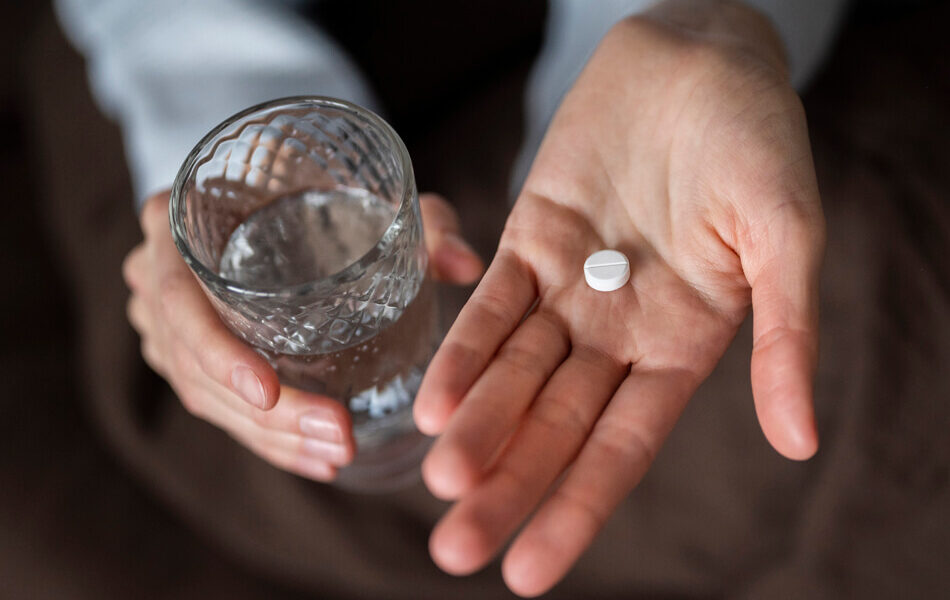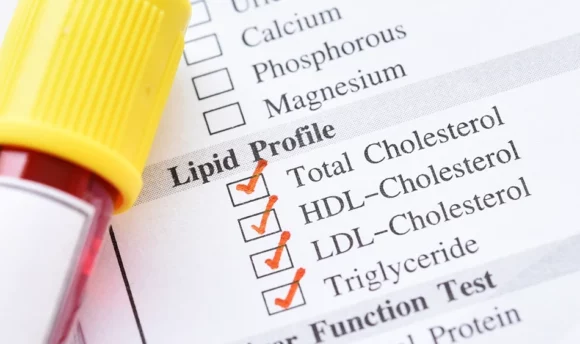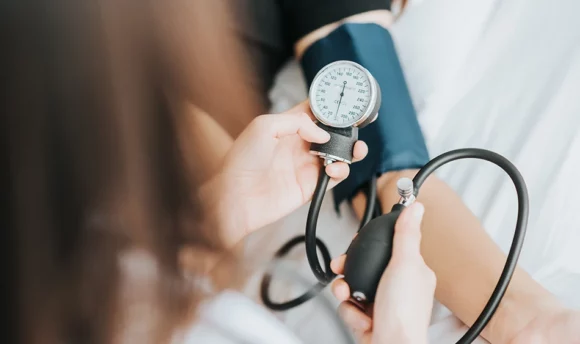How Quickly Does Lisinopril Lower Blood Pressure?
Managing blood pressure levels can be frustrating, especially if you don’t know the best medication. Lisinopril is one of those treatments that lower blood pressure, but how quickly does it work? We detail what lisinopril is and how fast it works after consumption.

There are many medications that claim to maintain blood pressure levels: enalapril, ramipril, perindopril, and others.
Lisinopril is one of those treatments that can treat high blood pressure, heart failure, and other heart-related problems. You might think – but how fast can this work? Any type of medication will affect your body differently. It just depends on a few physical and genetic factors.
Everyone wants to have medication that kicks in quickly. Does lisinopril work after a few minutes? How long do you need to wait? We can answer all the questions you might have.
In this article, you’ll discover what lisinopril is and how fast it works.
What Is Lisinopril?
Lisinopril is a medication used to treat high blood pressure by relaxing the blood vessels. This can help prevent heart attacks, strokes, and kidney damage. People often swallow these capsules before or after meals to absorb the full effects.
People who suffer from hypertension usually need to take medications like lisinopril to prevent long-term health problems. Lisinopril to the class of ACE inhibitors that represent angiotensin-converting enzymes – a type of protein that helps blood flow in your body.
Other medications usually contain ACE inhibitors to prevent high-pressure levels. However, lisinopril is specifically known to help people recover from heart attacks. They can take this treatment 24 hours after the medical emergency to increase their survival rate.
What Does Lisinopril Do?
Blood pressure medication like lisinopril blocks a substance that causes the blood vessels to constrict. This can help regulate oxygen in your heart and vital organs. ACE inhibitors especially stop the production of angiotensin II to support blood flow.
Lisinopril is sometimes used alone or in conjunction with other medications for high blood pressure. It can remove the workload from your heart, making it easier for the body to transport blood and oxygen. This prevents damage to the kidneys, brain, and heart vessels.
Those who have recently suffered from a heart attack usually need to take medication due to the damaged heart muscle. Lisinopril may strengthen the heart again and help it pump blood efficiently. Doctors usually recommend the right dosage for people with weakened hearts.
How Quickly Does Lisinopril Lower Blood Pressure?
Lisinopril could lower your blood pressure in just under 60 minutes. The maximum effects usually kick in after 6 hours. How long it takes for your body to absorb the medication depends on the dosage, pressure levels, and type of treatment.
Taking any medication requires time for it to work in your system. Most ACE inhibitors need to interact with certain enzymes in your body before the effect takes place. You might notice a lack of high blood pressure symptoms after one hour, including headaches and chest pain.
If your dosage is 20mg or higher, the effects might show quickly. A doctor typically prescribes the right amount for your blood pressure levels. However, this stabilization won’t fix completely overnight. Be prepared to wait 2–4 weeks for your blood pressure to teach optimal range.
Just be aware that drug interactions could prevent lisinopril from doing its job. You should speak to a doctor about what not to take and how you can help speed up the process. It’s always better to hear professional medical advice when taking a new medication.
When to Take Lisinopril
You would need to take lisinopril once a day, before or after meals. Some doctors might suggest consuming this medication before bedtime due to the potential side effects. If you experience dizziness, take one dosage in the evening so you can avoid it during the day.
It might be best to have one pill at the same time every day. This may stop you from forgetting each dose and disrupting the effects. Swallow lisinopril tablets with water and always have food close to that time. Taking strong medication on an empty stomach could make you feel sick.
Side Effects of Lisinopril
Any type of blood pressure medication will have common side effects. Doctors usually go through these symptoms with you before prescribing the treatment. If you suffer from serious side effects that aren’t common, seek medical help and stop taking lisinopril right away.
Let’s take a look at some of the side effects:
Blurred vision: Some medications like lisinopril may affect the fluid in your eyes. This is usually nothing to worry about when you first start treatment but talk to a doctor if the problem persists. Blurry eyesight should never last more than a few days while taking medication.
Sweating: Your body has to adjust to the new substance, so sweating is bound to happen after the first dose. Anxiety and heart palpitations are other symptoms that might cause you to sweat from worrying. This should only go on for the first week until your body adjusts.
Fatigue: Low or high blood pressure will naturally wear you out. Taking new blood pressure drugs might increase those effects for the first few days. It’s perfectly normal to feel tired when feeding your body new medication, so get plenty of rest and don’t miss any doses.
Stomach pain: Pain in your gut might be a sign of constipation from taking lisinopril. Those who have a sensitive stomach usually react differently to certain medications. Make sure to drink plenty of water and eat nutritious foods to avoid taking drugs on an empty stomach.
Headache: Headaches are super common in people who have high blood pressure problems. You should remain fully hydrated throughout the day to eliminate this pain. However, if you get a headache every day, talk to a doctor about why this might be happening.
Cloudy urine: You don’t have to worry about cloudy urine when taking lisinopril. This could mean you’re dehydrated and need more fluids. If you still have cloudy urine after drinking, seek medical help to rule out the possibility of diabetic kidney disease or kidney failure.
How to Manage Your Blood Pressure
There are a few ways to regulate your blood pressure when taking the first dose of lisinopril. Always check with healthcare professionals before committing to certain methods. Pregnant women need to be extra careful in their second and third trimesters.
Losing weight or completing physical activities is the first step to lowering blood pressure. Doing cardio-based workouts for 30 minutes every day may reduce high-pressure levels by 5–8mmHg. You can go for a run, walk, or jog to feel healthier and notice fewer physical symptoms.
Your diet also plays a big part in reaching low blood pressure. Junk food containing fats, sugars, and salts will put stress on your cardiovascular system. Avoid eating high-sodium meals and consume foods like citrus fruits, salmon, berries, pumpkin seeds, and chicken.
If you need more support, the various blood pressure apps might help you to track your medical condition and give you a personalized nutrition plan. This app is all about preventing heart attacks and strokes by monitoring your cholesterol levels, setting daily movements, and encouraging you to eat.
FAQs
One lisinopril dose might only last around 12 hours. This is due to the medication leaving your system through urine and sweating. Half a day is still long enough for lisinopril to cause a blood pressure drop. Just make sure not to miss a dose and always take the right amount.
Lisinopril won’t always help you sleep properly. Any type of ACE inhibitor may cause tiredness or insomnia. ACE inhibitors increase potassium levels in your body that might lead to diarrhea, headaches, muscle pain, leg cramps, and achy joints – symptoms that may disturb sleep.
No, you need to wait a few days for the medication to work and stay in your body. Each dose of lisinopril should trigger a blood pressure drop in 60 minutes, but this won’t be enough to reach the ideal optimal range of between 90/60mmHg and 120/80mmHg.
A Word From Our MD
Dealing with high-pressure levels in your blood can be frustrating, but the right medication may work quickly to deflect heart failure, hypertension, kidney disease, and a heart attack. Your healthcare provider should tell you the right dosage on your lisinopril prescription.
There are certain groups that might not benefit from this medication. Pregnant women, those with allergies to other ACE inhibitors, syndrome of inappropriate antidiuretic hormone secretion, and people who have a history of hyperkalemia need to be aware of the side effects.
Lisinopril is a good medication to have since it lowers blood pressure in a short amount of time. You may notice a lack of symptoms in one hour, but remember that your body needs to adjust over a few days.
Read more about the drug information to see if it’s suitable for your health, and always consult with your healthcare provider before taking any medication.
Conclusion
So, does the lisinopril drug work quickly?
Lisinopril has gone through many clinical trials that show it’s quick at balancing pressure levels in your body. This is a well-tolerated medication among those who suffer from hypertension. You can speak to your doctor about how to take it and when it might eliminate physical symptoms.

















































 Select your language:
Select your language: 








